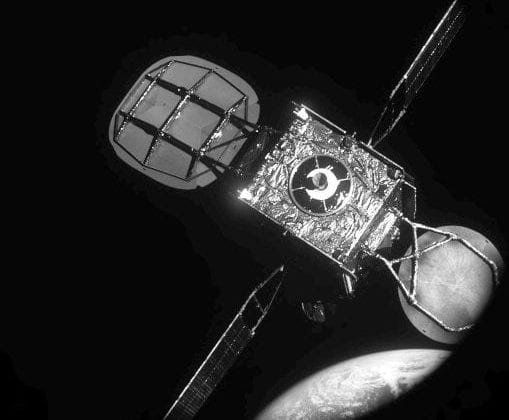Intelsat 901 Back in Service After Historic Docking Mission

View of IS-901 satellite from MEV-1 “near hold” position during approach. Photo: Northrop Grumman
Intelsat satellite IS-901 has returned to service after docking with Northrop Grumman‘s Mission Extension Vehicle (MEV-1). In late February, Northrop Grumman and its subsidiary SpaceLogistics LLC successfully docked MEV-1 to IS-901, marking the historic first time that two commercial satellites were docked in orbit. This also marked the first time mission extension services were performed satellite in Geostationary Orbit (GEO).
Since then, MEV-1 has assumed navigation of the combined spacecraft stack reducing its inclination by 1.6° and relocating IS-901 to its new orbital location. Intelsat then transitioned roughly 30 of its commercial and government customers to the satellite on April 2. IS-901 is now operating at the 332.5°E orbital slot and providing full service.
Tom Wilson, vice president of Northrop Grumman Space Systems and president of SpaceLogistics said in an April 17 release said the team will continue with on-orbit servicing through its multi-year technology roadmap which includes inspection, assembly and repair.
MEV-1 is under contract to provide five years of life extension services to the IS-901 satellite before returning the spacecraft to a final decommissioning orbit. MEV-1 will then be available to provide additional mission extension services for new clients. Northrop Grumman is also scheduled to launch its second Mission Extension Vehicle, MEV-2, later this year, and Intelsat has contracted MEV-2 to service Intelsat 1002 satellite.
“With a focus on providing the best customer experience in our industry, Intelsat is proud to have pioneered this innovative first with Northrop Grumman. We see increased demand for our connectivity services around the world, and preserving our customers’ experience using innovative technology such as MEV-1 is helping us meet that need,” said Intelsat Chief Services Officer Mike DeMarco.